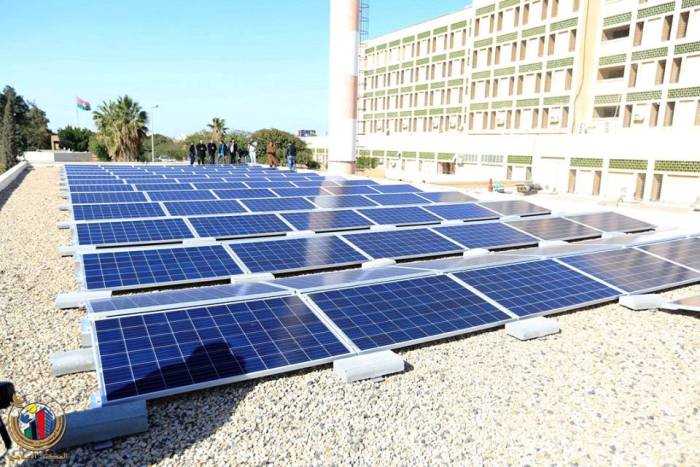The United Nations Development Program is backing the installation of solar power panels on the roofs of hospitals in numerous cities across Libya to guarantee a stable supply of electricity.
Also read:Eltek to install 104 solar arrays in Zimbabwe’s hospitals
Power outages are frequent incidences in the North African nation’s towns and hospitals always bear the brunt of these persistent blackouts. Solar panels have already been installed in 10 hospitals, according to Reuters.
A solar panel installed at Abu Salem’s emergency hospital by the UNDP can generate about 37.5 KW, and store about 130 KW. Daytime usage totals to 37 KW and nighttime usage to 5 KW.
The installations for the Tripoli hospitals are financed by The United Nations Central Emergency Response Fund (CERF), which supports hasty humanitarian response.
The Libyan plan consists of escalating installed electrical generation ability to 20 gigawatts by 2020 from about 6.2 GW at present. Besides delivering to the domestic market, Libya is planning to export power to Europe.
Tripoli has also set a goal of providing 10 per cent of its energy usage from renewable sources, particularly solar thermal and wind energy.
The Abu Salim Hospital of Accidents has announced that the solar system that has been installed by the UN Development Programme in Libya (UNDP) is now all set to work after being tested by the projects’ engineers.
Abu Salim municipality said the hospital’s management signed the paperwork of the solar power system given by the UNDP in the attendance of the UNPD’s Head, the mayor of Abu Salim, the Director of the hospital and other related persons.
“The UNPD installed the solar power system as part of the UNPD’s aim to install solar power systems in Libya’s hospital to assist in finding an alternative to electricity in the middle of the present shortage of the general network.” According to the officials of the UNDP.
“The UNDP’s engineers tested the solar power system for 12 hours in the past two days and concluded that it was working well, so it is all set to function in the hospital now.” The Abu Salim municipality added.

